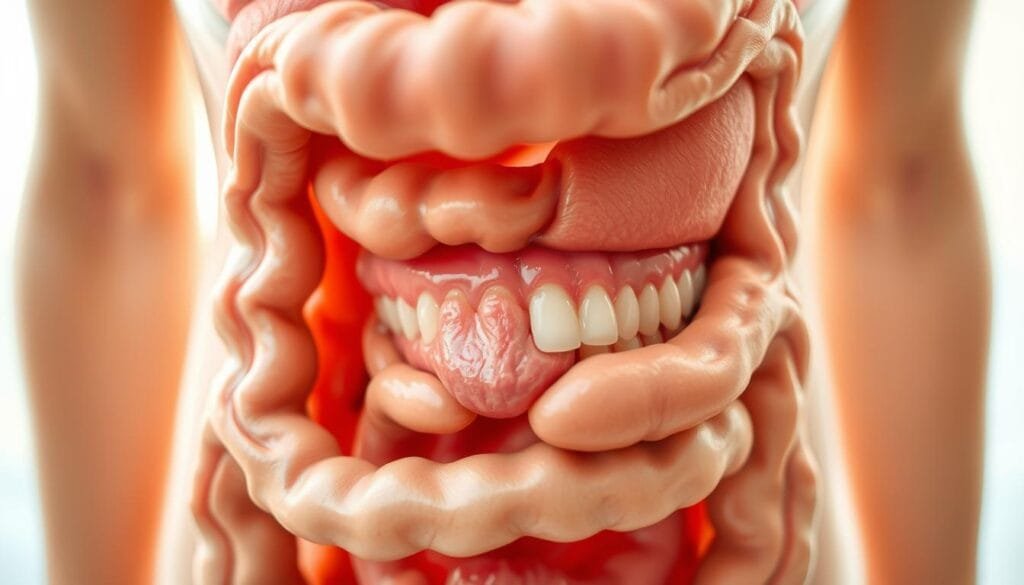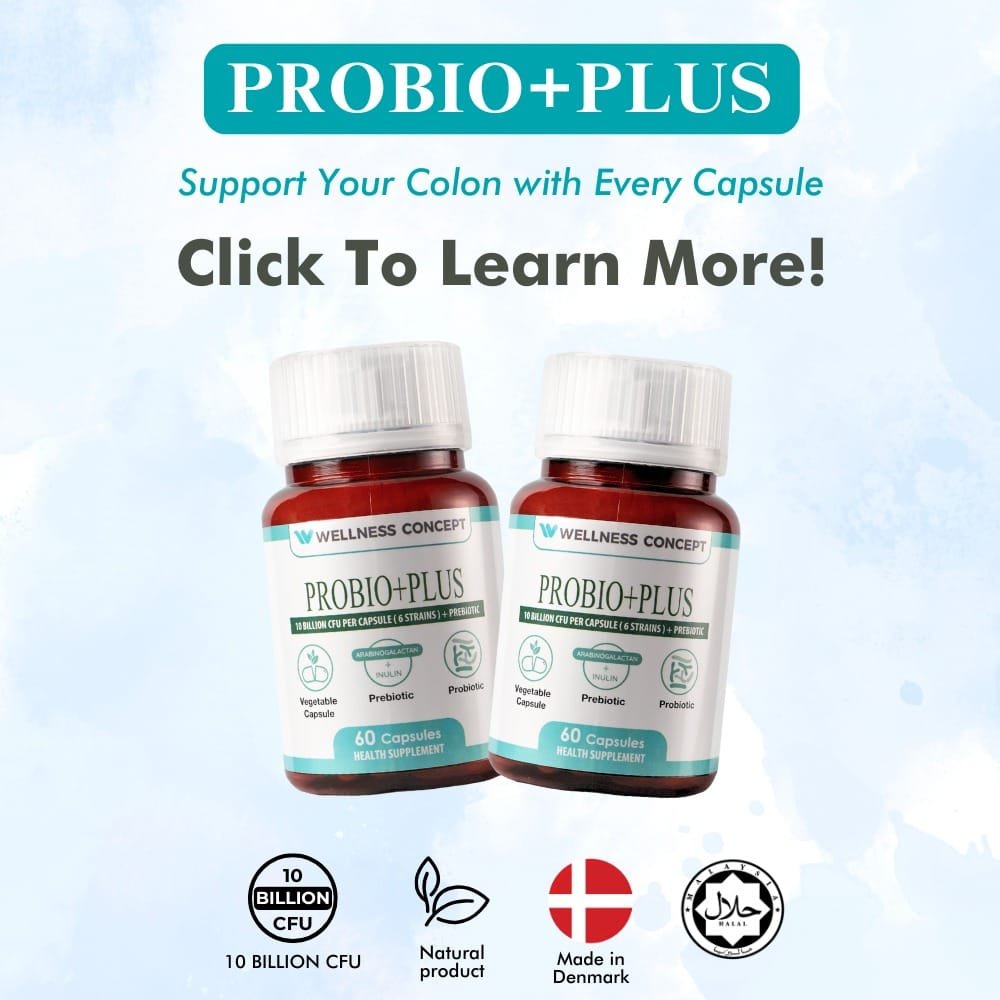Currently Empty: RM0.00
Did you know that over 40% of adults globally experience discomfort related to digestive issues? This startling statistic highlights the growing need to understand how beneficial microorganisms can support overall health. Recent research and clinical studies have proven the effectiveness of specific strains in improving well-being.
This article serves as a comprehensive guide to exploring the multifaceted benefits of these microorganisms. It bridges scientific evidence with practical usage, offering insights into how they can enhance health. Whether you’re curious about their medical or dietary applications, this guide has you covered.
For more information, contact Wellness Concept via WhatsApp at +60123822655. Their operating hours are Monday-Friday 9:30 am-6:30 pm, Saturday 10 am-5 pm, and Sunday Closed. Let their experts guide you toward better health.
Key Takeaways
- Over 40% of adults globally face digestive discomfort.
- Clinical studies confirm the effectiveness of specific strains.
- This article provides a detailed guide to their benefits.
- Wellness Concept offers expert consultations via WhatsApp.
- Operating hours: Monday-Friday 9:30 am-6:30 pm, Saturday 10 am-5 pm.
Introduction to Probiotics and Wellness Concept
Understanding the benefits of live microorganisms can transform your approach to health. These tiny organisms, often referred to as probiotics, are naturally found in fermented foods like yogurt, kimchi, and sauerkraut. They have been used for centuries to support digestion and overall well-being.
What Are Probiotics?
Probiotics are live, non-pathogenic microorganisms that provide a health benefit when consumed in adequate amounts. They play a key role in food fermentation and immune modulation. Research has shown that these beneficial bacteria can help prevent and treat various diseases, including digestive disorders and infections.
Historically, fermented foods were a staple in many cultures, long before the scientific community recognized their health benefits. Today, clinical studies have validated their effectiveness, making probiotics a cornerstone of modern health practices.
Overview of Wellness Concept, Contact, and Business Hours
Wellness Concept is dedicated to helping individuals harness the power of probiotics for better health. Their team of experts provides personalized guidance to manage health conditions effectively. Whether you’re new to probiotics or looking to optimize your routine, they are here to assist.
For consultations, contact Wellness Concept via WhatsApp at +60123822655. Their operating hours are Monday-Friday 9:30 am-6:30 pm and Saturday 10 am-5 pm. Take the first step toward improved health with their trusted expertise.
Exploring the probiotic role in the body
The human gut is a complex ecosystem where beneficial microbes play a vital part. These microorganisms, often referred to as probiotics, interact with the gut environment to support digestion and overall health. Specific strains have been shown to produce beneficial metabolites, enhance immune responses, and maintain a balanced gut flora.
Research highlights how these microbes influence the gut environment. For example, certain strains can modulate the immune system, reducing inflammation and improving digestion. This interaction is crucial for maintaining a healthy gut and preventing discomfort.
Studies have demonstrated that the effect of these microorganisms extends beyond digestion. They can produce short-chain fatty acids, which support gut barrier function and reduce the risk of infections. This shows how precise interactions between microbes and the gut flora lead to positive health outcomes.
| Strain | Effect | Benefit |
|---|---|---|
| Lactobacillus | Enhances digestion | Reduces bloating |
| Bifidobacterium | Modulates immunity | Lowers inflammation |
| Saccharomyces boulardii | Produces metabolites | Supports gut barrier |
Understanding these mechanisms helps explain why incorporating beneficial microbes into daily routines can be so impactful. By fostering a balanced gut environment, individuals can experience improved digestion, stronger immunity, and overall better health.
Benefits of Probiotics for Gut and Oral Health
Balanced gut and oral health can significantly impact daily life. Research shows that specific strains of beneficial microorganisms support both systems, leading to improved well-being. This section explores how these microbes enhance digestion and oral hygiene, backed by clinical evidence.

Digestive Benefits and Gut Health
Clinical studies highlight the digestive advantages of these microorganisms. They help maintain a healthy gut by reducing bloating, improving digestion, and preventing infections. For example, Lactobacillus strains are known to enhance gut function and alleviate discomfort.
One study found that daily consumption of fermented products reduced symptoms of irritable bowel syndrome (IBS). Another trial showed that specific strains lowered inflammation, aiding in the treatment of gastrointestinal disorders. These findings underscore the importance of a balanced gut microbiome.
Oral Health Improvements
Beneficial microbes also play a crucial role in oral hygiene. Research indicates that certain strains reduce the risk of dental caries and gum diseases. For instance, Bifidobacterium has been shown to lower harmful bacteria in the mouth.
A clinical trial involving children demonstrated that probiotic milk reduced infection-causing bacteria. Another study revealed that chewing gums with beneficial strains improved plaque and gingival scores. These results highlight the dual benefits of these microorganisms for both gut and oral health.
| Strain | Benefit | Clinical Outcome |
|---|---|---|
| Lactobacillus | Improves digestion | Reduces IBS symptoms |
| Bifidobacterium | Lowers oral bacteria | Decreases dental caries |
| Saccharomyces boulardii | Prevents infections | Supports gut barrier |
Incorporating these beneficial strains into daily routines can lead to significant health improvements. Whether through fermented foods or specialized products, they offer a natural way to support both gut and oral health.
Probiotics and Immune System Modulation
The immune system relies on a delicate balance of beneficial microorganisms to function effectively. These microbes interact with immune cells, enhancing the body’s ability to fight infections and reduce inflammation. This section explores how specific strains modulate immunity and the clinical evidence supporting their use.
Immunomodulatory Mechanisms
Beneficial microbes influence the immune system through various mechanisms. They stimulate the production of immunoglobulin A (IgA), which prevents harmful bacteria from adhering to the gut lining. Additionally, they activate T regulatory cells (Tregs), which help maintain immune balance and prevent overactive responses.
For example, certain strains of Lactobacillus and Bifidobacterium have been shown to enhance the production of anti-inflammatory cytokines. This reduces chronic inflammation, a key factor in many immune-related conditions. These interactions highlight the importance of a balanced gut microbiome for optimal immune function.
Evidence from Clinical Studies
Clinical studies provide compelling evidence of the immune-boosting effects of these microorganisms. A double-blind, placebo-controlled trial found that daily consumption of specific strains reduced the incidence of respiratory infections by 42%. Another study demonstrated that Saccharomyces boulardii improved gut barrier function, reducing the risk of infections.
“Probiotics have shown significant potential in modulating immune responses, offering a natural way to enhance resistance to infections and manage chronic inflammation.”
Here’s a summary of key findings from recent research:
| Strain | Effect | Clinical Outcome |
|---|---|---|
| Lactobacillus rhamnosus | Boosts IgA production | Reduces respiratory infections |
| Bifidobacterium longum | Activates Tregs | Lowers inflammation |
| Saccharomyces boulardii | Enhances gut barrier | Prevents infections |
These findings underscore the health benefit of incorporating beneficial microorganisms into daily routines. Whether through diet or supplements, they offer a natural way to support immune health and overall well-being.
Mechanisms Behind Probiotic Actions
The science behind beneficial microorganisms reveals fascinating mechanisms that support health. These tiny helpers work in various ways to maintain balance and improve well-being. Their actions include antimicrobial, anti-inflammatory, and antioxidant effects, as well as genetic stability.
Antimicrobial and Anti-inflammatory Effects
Beneficial microorganisms produce substances like bacteriocins that fight harmful bacteria. This helps prevent diarrhea and other gastrointestinal issues. Studies show that specific strains can reduce the risk of infections by targeting pathogens directly.
They also play a key role in reducing inflammation. By modulating the immune system, these microbes help manage chronic conditions. For example, certain strains increase anti-inflammatory cytokines, which soothe inflamed tissues.
Antioxidant Properties of Probiotics
Oxidative stress can damage cells and lead to various health problems. Beneficial microorganisms counteract this by activating pathways like Nrf2. These pathways enhance the body’s natural defenses against oxidative damage.
Research highlights how specific strains reduce oxidative stress markers. This supports overall health and protects against chronic diseases. Their antioxidant properties make them a valuable addition to daily routines.
Genetic and Phenotypic Stability
For these microorganisms to remain effective, they must stay stable under different conditions. Genetic and phenotypic stability ensures they survive in the gut and perform their functions. This stability is crucial for their long-term benefits.
Studies confirm that certain strains maintain their effectiveness even after exposure to harsh environments. This makes them reliable for restoring balance, especially after antibiotic use. Their stability is a key factor in their success.
| Mechanism | Effect | Benefit |
|---|---|---|
| Antimicrobial | Fights pathogens | Prevents infections |
| Anti-inflammatory | Reduces inflammation | Manages chronic conditions |
| Antioxidant | Counters oxidative stress | Protects cells |
| Stability | Ensures effectiveness | Supports long-term use |
Understanding these mechanisms provides evidence of how beneficial microorganisms work. Their multifaceted actions make them a powerful tool for improving health and preventing disease.
Dietary Strategies and Probiotic Supplementation
Incorporating beneficial microorganisms into daily meals can transform health outcomes. Simple dietary changes, like adding fermented foods, can significantly enhance well-being. This section provides actionable guidelines to help you integrate these powerful allies into your routine.
Integrating Probiotics in a Daily Diet
Probiotic-rich foods like yogurt, kimchi, and sauerkraut are excellent choices for daily meals. These foods naturally contain live microorganisms that support gut health. Research shows that regular consumption can improve digestion and boost immunity.
For sustained results, aim to include at least one probiotic-rich food in your diet daily. Clinical trials have demonstrated that this practice reduces symptoms of digestive discomfort and enhances overall health. Wellness Concept experts recommend starting with small portions and gradually increasing intake.
Different Forms of Probiotic Products
Probiotics are available in various forms, including yogurts, drinks, and supplements. Each type offers unique benefits, making it easier to incorporate them into your routine. For example, probiotic drinks are convenient for on-the-go use, while supplements provide concentrated doses.
Studies highlight the effectiveness of these products in managing specific health conditions. A recent trial found that daily use of probiotic supplements reduced bloating and improved gut function. Wellness Concept can guide you in choosing the right product based on your needs.
“Probiotic-rich foods and supplements offer a natural way to support gut health and overall well-being.”
Here’s a quick comparison of probiotic forms:
| Form | Benefit | Best Use |
|---|---|---|
| Yogurt | Improves digestion | Daily meals |
| Drinks | Convenient | On-the-go |
| Supplements | High potency | Targeted support |
By following these strategies, you can harness the power of beneficial microorganisms to improve your health. For personalized advice, contact Wellness Concept via WhatsApp at +60123822655.
Scientific Research and Evidence on Probiotic Efficacy
Recent advancements in scientific research have shed light on the effectiveness of beneficial microorganisms in improving health. Rigorous studies and meta-analyses provide compelling evidence supporting their use in managing various conditions. This section delves into clinical trials and emerging trends, offering a comprehensive view of their efficacy.
Clinical Trials and Meta-analyses
Clinical trials have consistently demonstrated the benefits of specific strains in addressing health issues. For instance, a meta-analysis involving over 6,000 participants found that certain strains significantly reduced symptoms of irritable bowel syndrome. Participants experienced fewer episodes of bloating and discomfort, highlighting their potential in managing bowel-related conditions.
Another study focused on the impact of these microorganisms on the body’s immune response. Results showed that daily consumption improved gut barrier function, reducing the risk of infections. These findings underscore the importance of high-quality clinical studies in validating their use.
Emerging Trends in Probiotic Research
Emerging research explores innovative approaches to harnessing the power of beneficial microorganisms. One trend involves the use of synbiotics, which combine prebiotics and probiotics for enhanced effects. Early studies suggest this combination may improve glucose metabolism and reduce inflammation.
Another area of interest is the role of specific strains in managing chronic conditions. For example, research indicates that certain strains may help regulate blood sugar levels, offering a natural approach to diabetes management. These trends highlight the evolving nature of probiotic research and its potential to transform health care.
| Study Focus | Key Findings | Impact |
|---|---|---|
| Irritable Bowel Syndrome | Reduced bloating and discomfort | Improved quality of life |
| Immune Response | Enhanced gut barrier function | Lower infection risk |
| Synbiotics | Improved glucose metabolism | Reduced inflammation |
These studies confirm the efficacy of beneficial microorganisms in promoting health. By staying informed about the latest research, individuals can make informed decisions about incorporating them into their routines.
Probiotics in Disease Prevention and Management
Maintaining a healthy balance of beneficial microorganisms can significantly reduce the risk of various diseases. These tiny helpers play a vital role in supporting the digestive tract, oral health, and overall systemic functions. By restoring healthy microbiota, they enhance the body’s natural defenses and improve cell function.
Management of Gastrointestinal Disorders
Specific microbial species, such as Lactobacillus and Bifidobacterium, are effective in managing gastrointestinal issues. They help restore balance in the digestive tract, reducing symptoms like bloating, diarrhea, and discomfort. Clinical studies show that these strains can prevent infections and improve gut barrier function.
For example, Lactobacillus rhamnosus has been shown to reduce the severity of irritable bowel syndrome (IBS). Another study found that Bifidobacterium longum supports the repair of damaged intestinal cells. These findings highlight their importance in comprehensive health management strategies.
Probiotics for Oral and Systemic Health
Beneficial microorganisms also play a key role in oral health. Certain species reduce harmful bacteria in the mouth, lowering the risk of dental caries and gum diseases. For instance, Streptococcus salivarius has been shown to improve plaque and gingival scores.
Beyond oral health, these microbes support systemic functions. They enhance immune responses, reduce inflammation, and protect against chronic conditions. Research indicates that specific strains can regulate blood sugar levels, offering a natural approach to diabetes management.
| Species | Benefit | Application |
|---|---|---|
| Lactobacillus rhamnosus | Reduces IBS symptoms | Gastrointestinal health |
| Bifidobacterium longum | Repairs intestinal cells | Gut barrier function |
| Streptococcus salivarius | Improves oral hygiene | Dental health |
Incorporating these beneficial species into daily routines can lead to significant health improvements. Whether through diet or supplements, they offer a natural way to prevent and manage diseases. For personalized advice, contact Wellness Concept via WhatsApp at +60123822655.
Real-World Applications and Product Examples
Fermented foods and supplements are practical ways to incorporate beneficial microorganisms into daily life. These products are widely available and offer a natural approach to improving health. This section explores specific strains found in everyday items and provides guidance on their use.
Probiotic Strains in Fermented Foods
Fermented foods like yogurt, kimchi, and sauerkraut are rich in live microorganisms. Specific strains, such as Lactobacillus and Bifidobacterium, enhance food function and quality. For example, Lactobacillus casei Shirota in yogurt supports digestion and boosts immunity.
Research shows that regular consumption of these foods may improve gut health and reduce inflammation. They also help maintain a balanced gut microbiome, which is essential for overall well-being. Wellness Concept recommends including at least one fermented food in your daily diet.

Supplement Examples and Usage Guidelines
Supplements offer a convenient way to incorporate beneficial microorganisms into your routine. Products like Lactobacillus casei Shirota and Bifidobacterium longum are popular choices. These supplements may enhance immune function and support gut health.
For optimal results, follow the usage guidelines provided on the product label. Wellness Concept suggests starting with a low dose and gradually increasing it. This approach helps the body adjust and maximizes the benefits of supplementation.
“Probiotic supplements are a simple and effective way to support health, especially when combined with a balanced diet.”
| Product | Strain | Benefit |
|---|---|---|
| Yogurt | Lactobacillus casei Shirota | Improves digestion |
| Kimchi | Lactobacillus plantarum | Boosts immunity |
| Supplement | Bifidobacterium longum | Supports gut barrier |
By choosing the right products and following usage guidelines, you can harness the power of beneficial microorganisms for better health. For personalized advice, contact Wellness Concept via WhatsApp at +60123822655.
How to Incorporate Probiotics into Your Daily Routine
Daily habits can be enhanced by adding beneficial microorganisms to your diet. These tiny helpers support digestion, boost immunity, and improve overall health. With a few simple adjustments, you can seamlessly integrate them into your routine for maximum benefits.
Tips for Maximum Health Benefits
Start by including fermented foods like yogurt, kimchi, and sauerkraut in your meals. These are rich in live cultures that promote a balanced gut microbiome. Research shows that regular consumption can reduce harmful pathogens and improve digestion.
For those who prefer supplements, choose products with strains like Lactobacillus and Bifidobacterium. These are known for their role in enhancing gut health and immune function. Always follow the recommended dosage for optimal results.
Pair your diet with fiber-rich foods to act as prebiotics. This combination supports the growth of beneficial bacteria, ensuring long-term health benefits. Consistency is key—make these adjustments a part of your daily routine.
Consulting with Wellness Concept Experts
Personalized advice can make a significant difference in your health journey. Wellness Concept experts provide tailored recommendations based on your unique needs. Whether you’re new to probiotic supplementation or looking to optimize your routine, their guidance ensures you achieve the best results.
For expert consultations, contact Wellness Concept via WhatsApp at +60123822655. Their team is available Monday-Friday 9:30 am-6:30 pm and Saturday 10 am-5 pm. Take the first step toward better health with their trusted expertise.
| Daily Intake Recommendation | Benefit |
|---|---|
| 1 serving of fermented food | Supports gut health |
| 1 probiotic supplement | Boosts immunity |
| Fiber-rich meals | Enhances bacterial growth |
By following these tips and seeking professional advice, you can harness the power of beneficial microorganisms for improved health. For more insights, explore this resource on integrating probiotics into your lifestyle.
Conclusion
Exploring the benefits of beneficial microorganisms reveals their profound impact on health. Clinical studies and reviews highlight their ability to support the immune system and improve overall wellness. These findings emphasize the importance of selecting high-quality strains for effective probiotic treatment.
From reducing inflammation to enhancing gut health, the evidence is clear. Understanding the right dosage and application ensures maximum benefits. For personalized advice, consult the experts at Wellness Concept via WhatsApp at +60123822655.
To delve deeper into the science behind these benefits, check out this comprehensive review. Take the first step toward better health today.
FAQ
What are probiotics?
Probiotics are live microorganisms, often referred to as “good bacteria,” that provide health benefits when consumed in adequate amounts. They help maintain a balanced gut environment and support overall wellness.
How do probiotics benefit gut health?
Probiotics aid digestion, reduce symptoms of irritable bowel syndrome, and help prevent diarrhea caused by antibiotics. They also promote a healthy balance of gut bacteria, which is essential for proper digestive function.
Can probiotics improve oral health?
Yes, certain strains of probiotics can reduce harmful bacteria in the mouth, lowering the risk of cavities, gum disease, and bad breath. They contribute to a healthier oral microbiome.
How do probiotics support the immune system?
Probiotics modulate immune responses by enhancing the body’s defense mechanisms. They help reduce inflammation and may lower the risk of infections by strengthening the immune system.
What are the best dietary sources of probiotics?
Fermented foods like yogurt, kefir, sauerkraut, kimchi, and kombucha are rich in probiotics. Including these in your diet can help maintain a healthy gut microbiome.
Are probiotic supplements effective?
Probiotic supplements can be effective, especially when specific strains are chosen for targeted health benefits. However, it’s important to consult a healthcare professional before starting supplementation.
What should I look for in a probiotic product?
Look for products with well-researched strains, a high number of live cultures (CFUs), and clear storage instructions. Checking for third-party testing and certifications can also ensure quality.
Can probiotics help manage gastrointestinal disorders?
Yes, probiotics have been shown to alleviate symptoms of conditions like irritable bowel syndrome, inflammatory bowel disease, and antibiotic-associated diarrhea by restoring gut balance.
How do I incorporate probiotics into my daily routine?
Start by adding probiotic-rich foods to your meals or taking a daily supplement. Consistency is key, and consulting a wellness expert can help tailor a plan to your needs.
Are there any side effects of taking probiotics?
Most people tolerate probiotics well, but some may experience mild side effects like bloating or gas. These symptoms usually subside as the body adjusts. Always consult a doctor if you have concerns.



